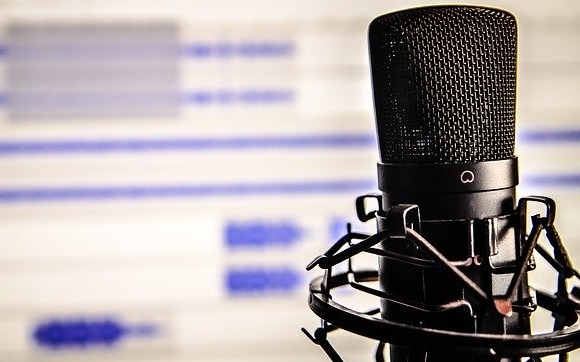Learning, Working and Podcasting Spaces

I recently changed one of my categories here, "Learning Spaces," to "Learning & Working Spaces" because I'm seeing greater overlap in those two places. We know learning has always been occurring outside of traditional spaces, such as classrooms, but it is more formalized now than ever before.
Spring 2020 certainly moved a lot of learning online from pandemic necessity. But other learning spaces have emerged in recent decades.
Co-working spaces are formal places for people needing office space but not wanting an office full-time. WeWork is one of the better-known commercial spaces. Colleges are opening virtual campuses, micro-campuses, but informal work and learning is happening in Panera Bread stores, Starbucks, and many local cafes and coffee shops.
I saw recently that Staples stores have been giving some of its retail space over to podcast recording booths. They partnered with Spreaker for recording spaces in six Staples stores in the Boston area. These booths are part of a new Staples Connect model, in which the retail stores offer coworking and community event spaces. The soundproof Staples Connect Podcast Studios are being developed in partnership with iHeartRadio. They provide professional equipment (RODECaster Pro control board, RODE microphones and SHURE headphones) and space for up to four people.
I don't know if most people would consider podcasts as a learning space but a lot of informal and some formal learning is happening through podcasts.
When I started podcasting at NJIT back in 2006, our initial audience was prospective students and we were clearly doing marketing. But that potential audience quickly grew when we saw that downloads were coming from a more general audience that was interested in research from the university.
In 2007, NJIT became part of the original sixteen colleges to launch Apple's iTunes U. That's when we started thinking about podcasts as a learning space. (The term "coursecasting" was briefly being used by some schools.)
Apple has changed how it offers podcasts but iTunes U still exists and as they state "iTunes U provides everything an instructor needs to bring the classroom together on iPad—build lessons with apps and your own materials, collect and grade assignments, start class discussions or talk with students to answer questions and provide feedback."

Kristen knows podcasting having been a commentator, producer, and former director of nonfiction programming for Slate’s sister company, Panoply. She has also hosted several successful podcasts, reaching millions of listeners and continue to create shows.
Is she an educator? Not in the formal sense of a teacher or professor, but you can certainly learn from the programs - and be entertained, which is a combination that some educators have not mastered.
I would include podcasting as a learning and working space that should be considered by individuals, businesses and schools.
Trackbacks
Trackback specific URI for this entryThe author does not allow comments to this entry

Comments
No comments